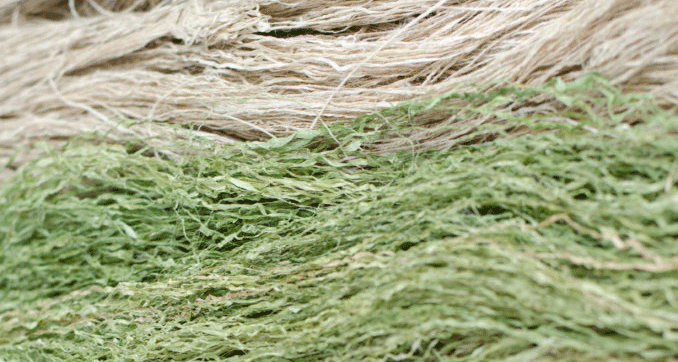Bast Fibre Technologies Inc. (BFTi) of Canada said it has sold $3.3 million (CA$4.5 million) worth of equity to Natural Products Canada (NPC) to finance trials and start production of hemp-based, compostable cleaning wipes.
Bast Fibre’s Chairman and CEO Noel Hall said the company hopes to capitalize on the trend toward elimination of single-use plastics and address the environmental problems caused by non-biodegradable synthetic wipes.
Natural Products Canada is funded by a range of public and private investors, including the federal government’s Centre of Excellence in Commercialization and Research. The investment, which was led by the NPC and venture capital firm Lightburn, includes participation from existing investors as well as new individual investors, the companies said.
Long-term goal
BFTi, an engineering firm that develops IP protected enhancements for hemp, flax and other bast fibers, said it has been developing a manufacturing process at a facility in Hungary, with the goal of producing compostable disinfecting wipes for customers in 2020 through European-sourced fiber. Hall said the long-term goal is to source bast plant material in Canada and the U.S., and produce wipes at facilities in North America.
The company said it plans to target sales to giant global consumer goods makers such as Procter & Gamble and Johnson & Johnson, as well as major North American consumer outlets such as Walmart and Costco.
The capital raising announcement follows a deal earlier this year in which BFTi entered a global licensing agreement with American materials giant Georgia-Pacific to develop, process and market next-generation sustainable non-wovens from the entire bast group of plants which includes jute and kenaf in addition to hemp and flax. The company said it aims to help Georgia-Pacific create a portfolio of products for G-P’s core customers in the North American food service, industrial and club sectors.
$50 billion industry
Cleaning wipes and other non-woven products such as diapers, makeup removal pads and hospital gowns and masks represent a $50-billion global industry, with the U.S. market alone estimated at about $28 billion. But most non-woven products are either synthetic or semi-synthetic and therefore major contributors to landfills and micro-plastic contamination. By contrast, bast-fiber-based non-wovens are plastic-free, compostable, and sourced from renewable crops which provide net reductions in greenhouse-gas emissions.
Shelly King, CEO of Natural Products Canada, said funding bast fiber initiatives could spur expanded cultivation of hemp for fiber in Canada, where most hemp is currently grown for CBD production and seed. “[Bast fiber] will play an important role in building long-term demand for hemp straw and realizing the vision of whole hemp plant utilization,” King said.
What are bast fibers?
Bast fibers (in hemp, often referred to as “technical” fibers) grow on the outside of the stalks of the bast group of plants. The fibers carry nutrients and support plant structure while the plant is growing, but also are naturally absorbent yet strong when wet, a desired characteristic in many non-woven products.
Robert Ziner, Founder & CEO at Canadian Industrial Hemp Corp., Toronto, which is developing industrial scale processing technology for hemp fiber, welcomed the announcements of the Georgia-Pacific and NPC deals.
“We’re really happy to see these companies moving the hemp stalk and fiber industry forward,” Ziner said. “We believe that introducing new technologies and scale into the hemp stalk processing industry will redefine existing production and marketing economics, and globally accelerate product development.”

